Raising and Re-Homing A Litter of Kittens: Essential Guide
Article
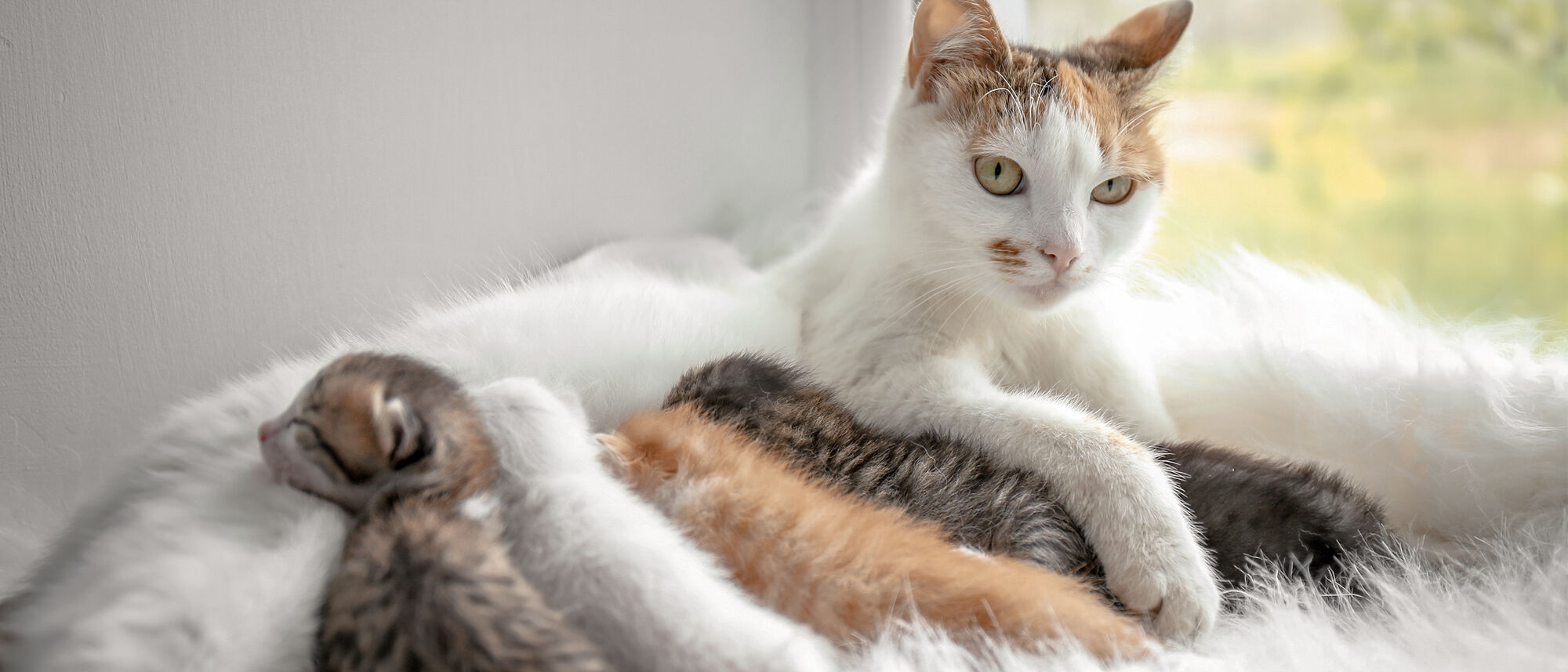
Helping your cat care for her newborns is a unique experience. It’s also a large responsibility.
The long-term health and wellbeing of a cat is heavily influenced by their earliest moments as a kitten; a well-fed kitten that’s regularly handled and socialised with their littermates will have far better prospects to one that is kept isolated.
That’s why it’s vital to familiarise yourself with a newborn’s requirements if your cat is expecting. Here are some essential points.
The first few weeks
The kittens will be mostly dependent upon their mother’s milk for the first month after birth. If the mother isn’t able to provide this milk to her kittens, you may be required to feed them yourselves with milk substitutes. Royal Canin Babycat milk is specially developed to provide all the important nutrients to support newborn kittens.
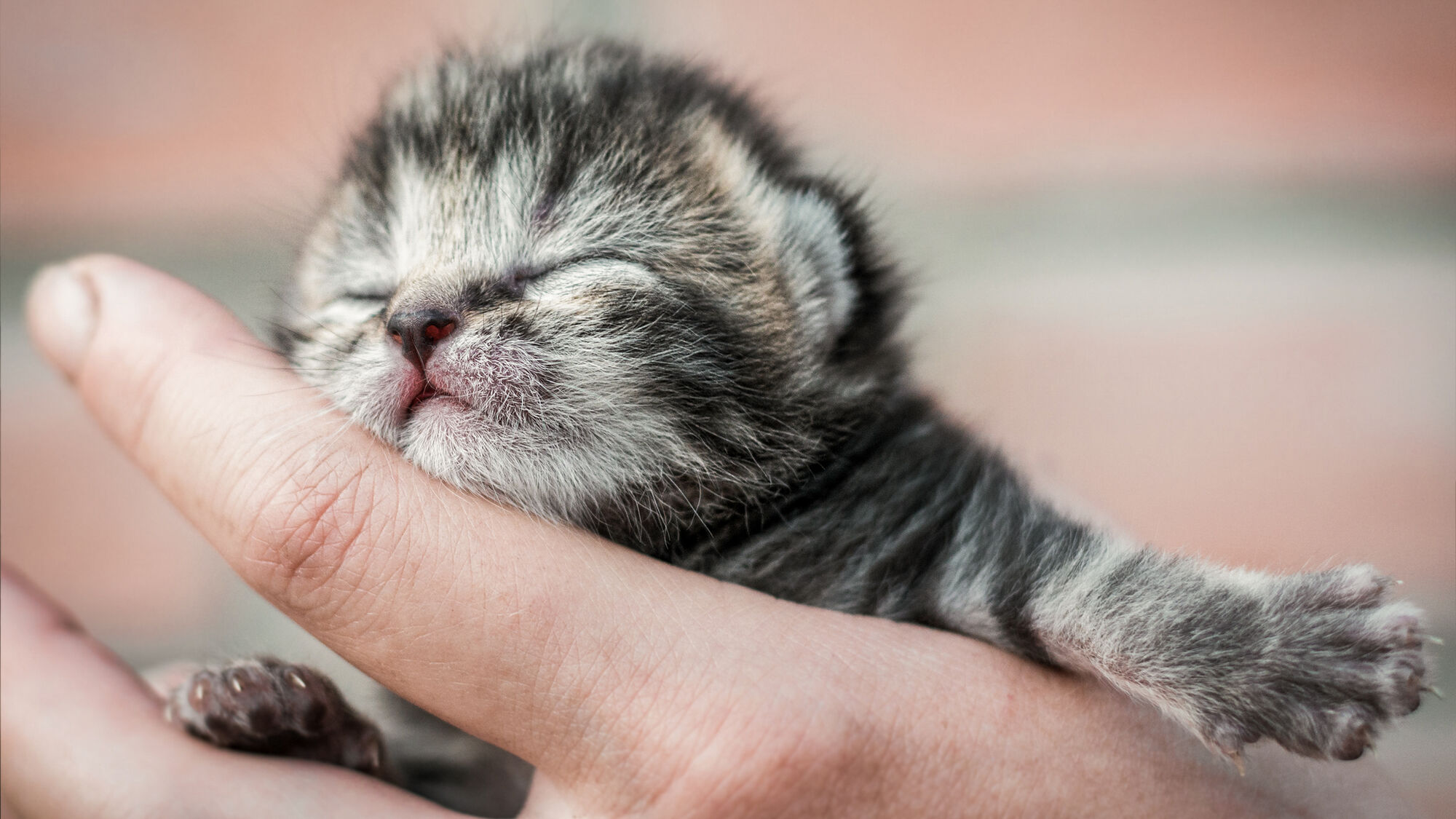
When do kittens stop nursing?
Kittens develop their milk teeth at around three to four weeks old, and it’s at this point that they can begin the transition from milk to solid foods – a process known as weaning. At this time, the kittens will imitate their mother’s eating habits and will be increasingly interested in their mother’s food. It is recommended, therefore, to give the mother a diet which is also adapted to support kittens.
Your kittens will need wet or dry food that’s been specifically designed to meet their nutritional needs and growth, such as the kitten products by Royal Canin (see end of article).
Begin by placing a small amount of food in a shallow saucer or plate. If the kittens appear reluctant, you can encourage them by offering the food from your fingertip or with a small spoon. Alternatively, you can soften kibbles by adding water and mashing them until they reach a porridge consistency.
Over time, you should increase the amount of food so that eventually they’re consuming more of the kitten food and less of the mother’s milk. By seven weeks old, weaning will be largely complete.
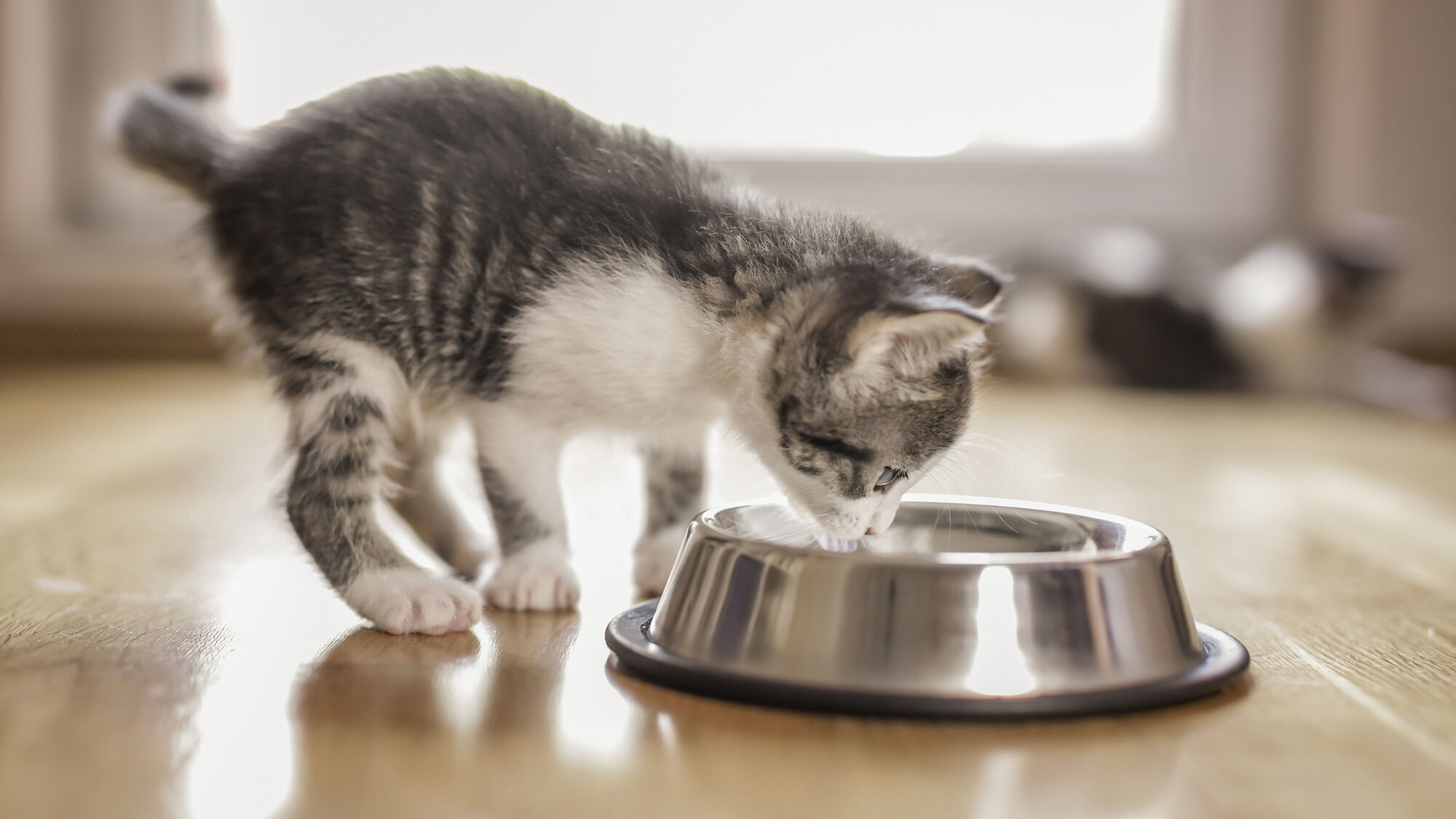
Some important points to remember:
Weaning must be done gradually to allow the kittens’ immature digestive system time to adapt to the new food.
- Dog food and human food should never be fed to your kitten or cat as they can be dangerous, toxic, or deficient in a number of essential nutrients.
- Even adult cat food is inadequate for the nutritional demands of a growing kitten, so only good quality kitten food should be offered. There is no need to supplement this with any other additives.
- If you wean too quickly, it can cause stress to the kittens and the mother.
- Kittens often step in their food, so replace it frequently to keep it fresh.
- Feed at regular times so you can evaluate the kittens and see if any need extra encouragement.
- Once your kittens are weaned, your cat will quickly come into season again, so you may wish to arrange a veterinary appointment to have her neutered.
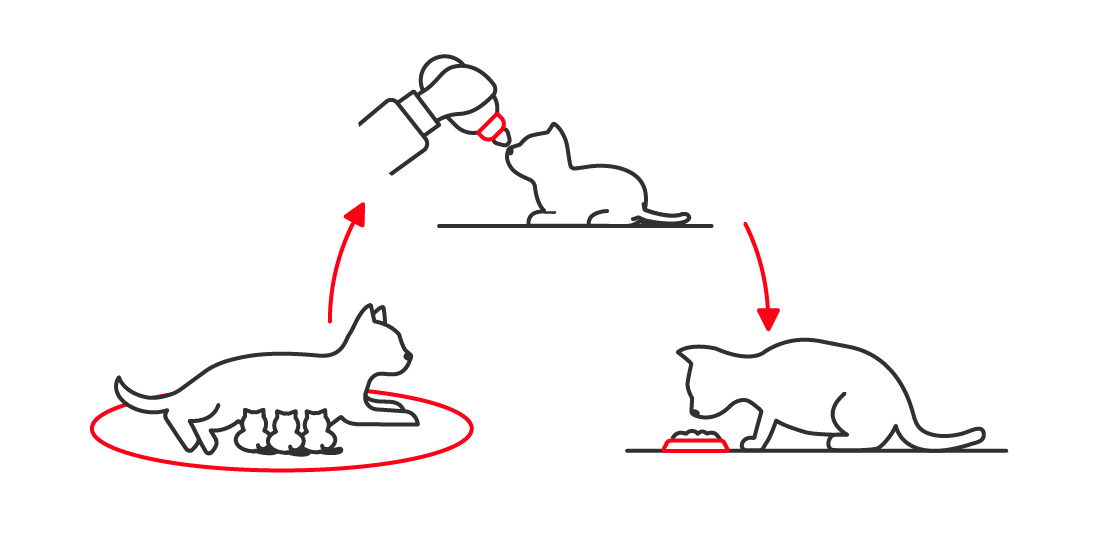
Preparing your kittens for a new home
You’ll notice the kittens’ development accelerate during the weaning stage. They’ll play, pounce, and run about with one another and will increasingly observe their mother to learn new skills.
This surge in activity marks the key socialisation period. It’s during this time, from two to seven weeks, that kittens are at their most receptive to new experiences and so you should make the most of this window by gradually introducing them to new sights, sounds, and smells.
It is at this point when the kittens can be familiarised with being handled. This is an important part of socialisation and can help prepare them for life among people. Sessions should be short but frequent, totalling between 30-60 minutes per day, and can begin after the kittens have had their first vaccinations.
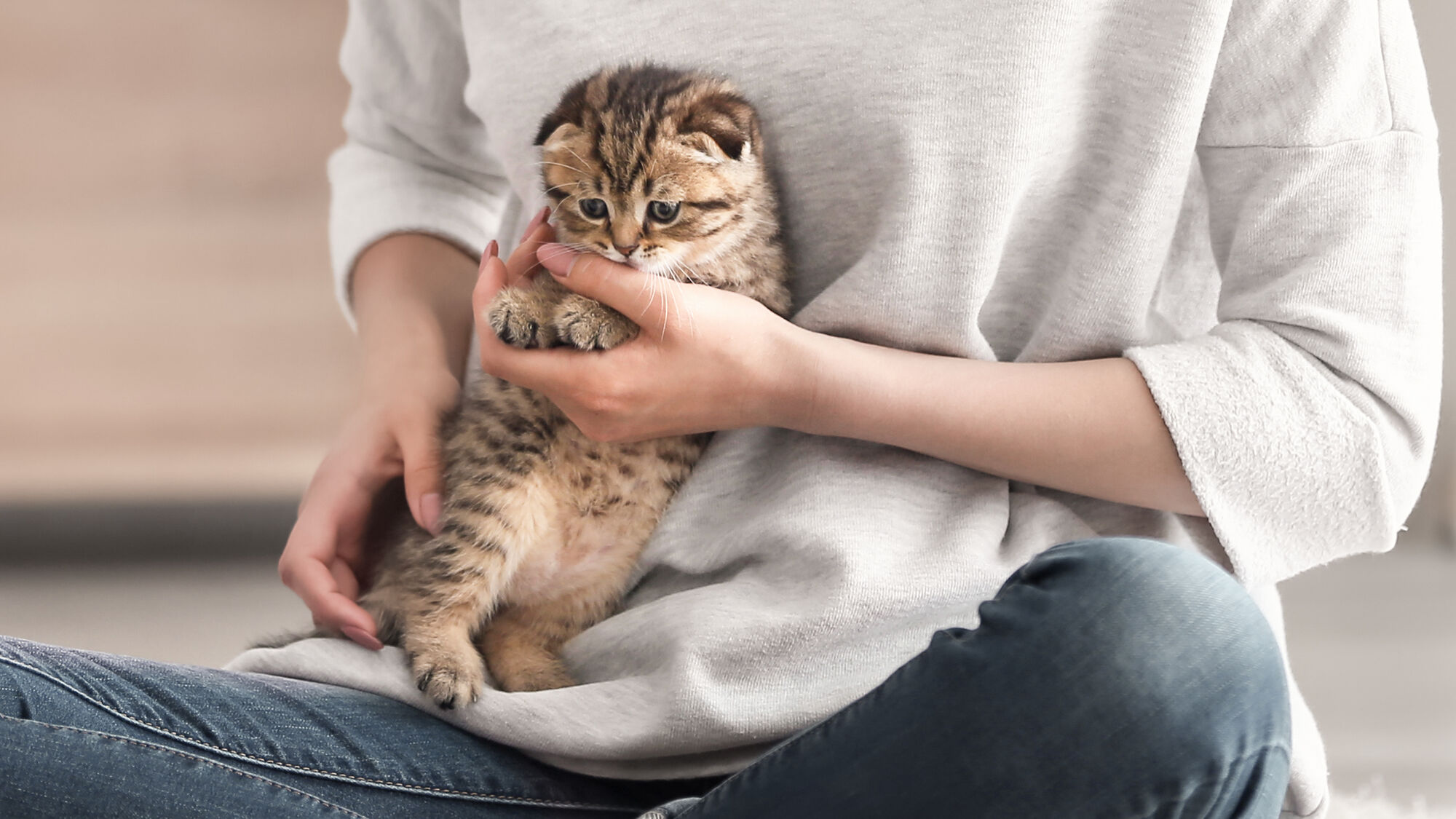
To handle a kitten, choose a time when they appear receptive and then with clean hands, gently lift and touch them all over. Try to have a range of people handle the kittens, both adults and children, males and females.
It’s nearly always best to handle the kittens in front of the mother unless she is poorly socialised herself, in which case you may wish to remove her while you interact with them.
As well as regularly handling the kittens and giving them new toys to interact with, you might play music, introduce new types of furniture, noises from household appliances like a washing machine, or take them out in a cat carrier. Any new positive experiences will help to prepare them for life in a new home. Just remember to introduce them gradually.

Taking kittens to the vets
The mother’s milk contains antibodies that protect the kittens during their earliest days. However, as the kittens are weaned, the level of antibodies drops, which makes them more vulnerable to disease.
It's important to stay in close contact with your vet as the kittens grow. They will be able to monitor healthy development, make recommendations on any dietary changes, and advise on the best time for their first vaccinations.
You’ll need a cat carrier to transport your kittens to their appointment. Ideally, it will be one they’re already familiar with. Place a blanket infused with their scent inside the carrier and drape one over the outside to help your kittens stay calm during the journey.
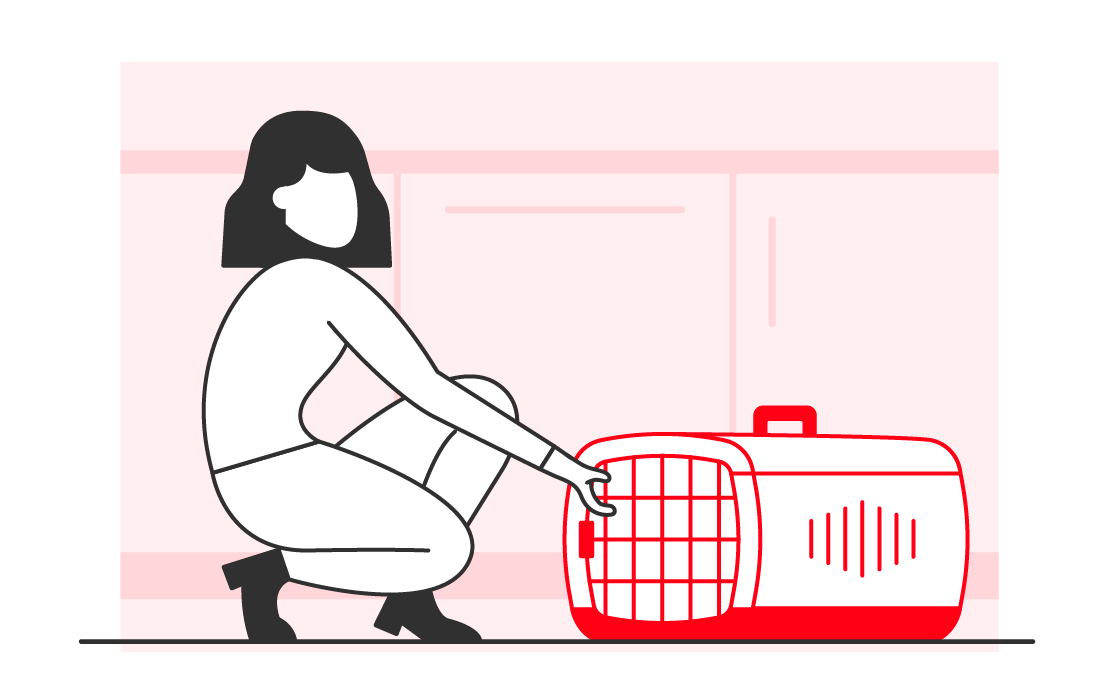
When can kittens be adopted?
A healthy start to life
Tailored nutrition for your kitten
Like & share this page